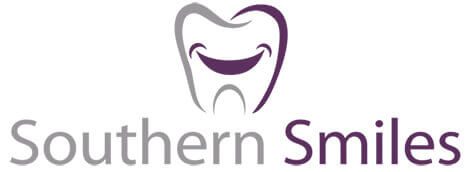Because of their inherent fear of the dentist, needles or a medical environment many patients have asked us about the differences between IV sedation vs general anaesthesia.
If you are one of these people it should please you to know that there are a number of sedation options available. While IV sedation is often sufficient to help many people relax for their dental procedures, some situations require general anaesthetic. Let’s look at the difference between sedation and general anaesthesia, and define when each should be used.
When Should Sedation Be Used?
- If you feel nervous or are afraid of the dentist, needles, or medical environments
- If you cannot keep your mouth open for a long time while your procedure is being done
- If you need extensive dental work carried out in your mouth
- Your gag reflex is particularly sensitive
- If any of these circumstances describe you or are the reason for you avoiding dental treatment, sedation dentistry could be an option for you.
What is IV Sedation?
Dental IV sedation can be administered by an anaesthetist or qualified dentist during dental surgery. During this process, the patient is given a certain amount of sedative in order to relieve anxiety, relax the muscles and induce a degree of drowsiness.
How is Intravenous Sedation Administered?
The sedative is administered through one of your veins and it starts working quite rapidly. Your dental practitioner can monitor and adjust your medication level.
During this process, you can still breathe and swallow unassisted. Recovery is fairly quick and most patients can go home almost immediately after their procedure.
Even though it is sometimes called sleep dentistry the patient is not asleep (although some people do close their eyes when they are relaxed)
The benefits of using IV dental sedation for relaxation include:
- You can achieve a higher level of sedation (and thus relaxation) through IV than through inhalation or oral sedation.
- Because of its administration to the bloodstream, its effects can be felt almost immediately
- Some memory loss or amnesia can be expected from IV sedation, meaning you are unlikely to have any memory from the experience. If dental trauma has affected you in the past this can be beneficial
- Even though you are very relaxed, you are still in a conscious state and you can avoid many of the risks that come with general anaesthesia.
How Safe is Sedation Dentistry?
Not everyone is a candidate for IV sedation. If you have any known benzodiazepine allergies, are pregnant, are obese, or are suffering from CNS depression, IV sedation won’t be recommended to you.
What Is General Anaesthetic?
General anaesthetic (GA) may only be administered by a specialised anaesthesiologist, in a hospital environment with the relevant support staff on standby.
Anaesthetic is used when someone needs a medical operation or a very complex dental procedure. Because of the possible side effects and complications that occur, GA can only be administered under controlled conditions.
How Is General Anaesthetic Administered?
When anaesthetic is administered the patient is given sedatives intravenously. You may also inhale anaesthetic gas to be fully unconscious and to paralyse your muscles so you don’t move around during the procedure.
When you have had anaesthetic, you are not aware of your surroundings and will not respond to external stimuli. It is also near-impossible to wake you up until the anaesthetic has worn off. You will be kept for observation and will only be allowed to go home once your practitioner is satisfied the medication has worn off.
When Is General Anaesthetic Used In Dentistry?
Because of the availability and success of IV sedation, general anaesthetic is not used often. There are some instances where anaesthetic is required. Sometimes, GA is recommended when:
- A patient has a high tolerance for the medication used in intravenous sedation
- The patient does not want to be conscious for the procedure
- Children under the age of 12 need dental procedures to be performed under moderate to deep sedation
How Safe Is General Anaesthesia In Dentistry?
While GA is considered sage, it would probably not be recommended to you if you suffer from diabetes, have a history of seizures, are a smoker, or have drug allergies.
Still have questions about IV sedation and general anaesthesia? It’s always best to speak to an expert. Give our team a call today: (02) 8503 9902.






